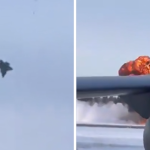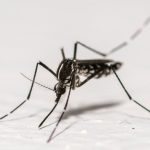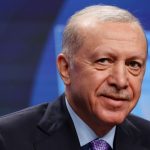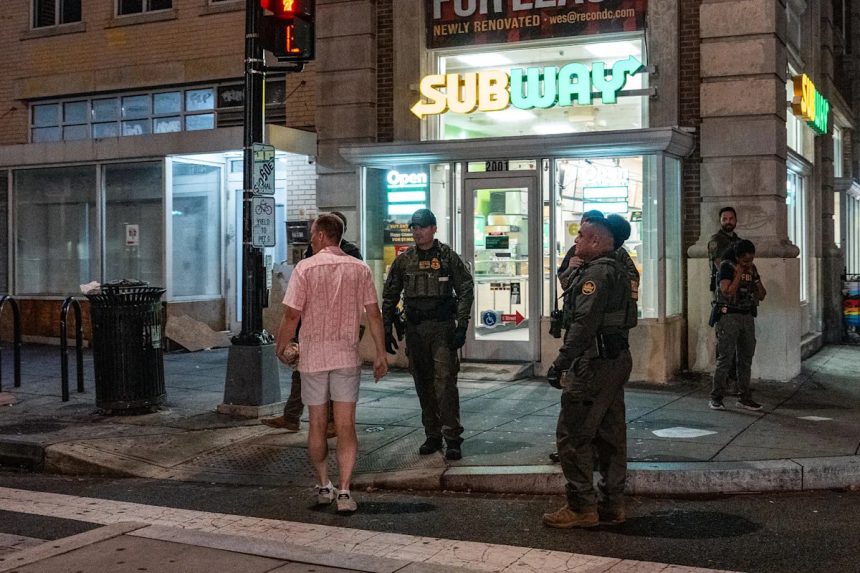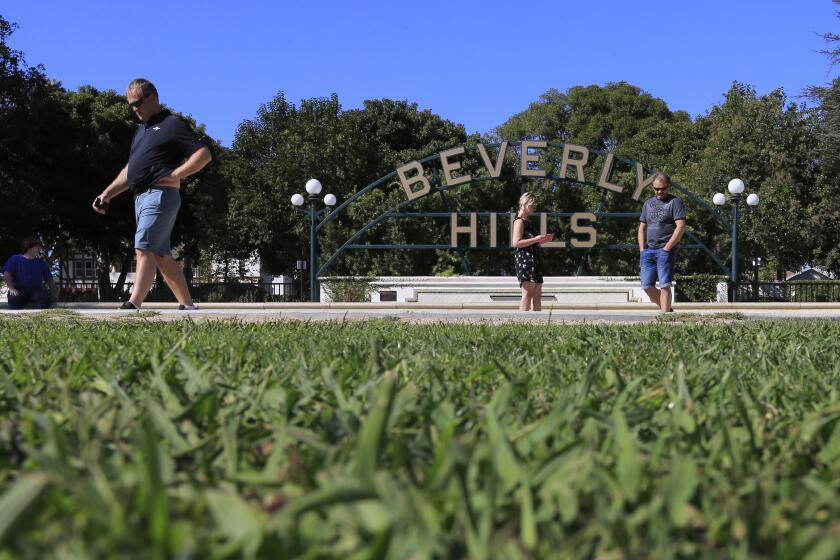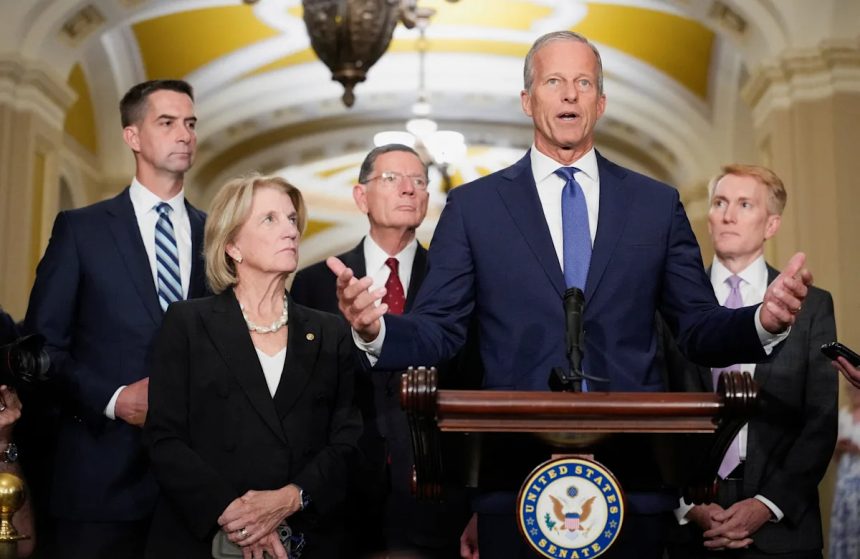To Graham Parsons, the nomination of Pete Hegseth as Defense secretary at once offered a fascinating case study and an immediate threat to his career.
Since 2012, Parsons has been a professor at West Point, the U.S. Army’s premier educational institution, where he has taught cadets military ethics and researched the knotty relationship between gender and warfare. Hegseth was a paragon of Parsons’ scholarship, a tattooed alpha male whose vision of military service is built on undermining and expelling female and transgender troops.
In his 2024 book The War on Warriors, Hegseth also agitates against America’s bedrock constitutional doctrine of civilian military control, casting this class of martial outsiders as weak, privileged, radically left. During his confirmation hearing in January, Hegseth pledged to “rip, root and branch the politics and divisive policies” out of service academies like West Point by ridding them of civilian faculty, some of whom, he wildly alleges in his book, had responded in the weeks after 9/11 with a “‘we deserved this’ narrative.”
Days after Hegseth’s hearing, President Donald Trump co-signed his quest via an executive order pledging to overhaul the “leadership, curriculum, and instructors” at the military service academies. This was part of Trump’s broader effort to restrict and reshape the military’s elite and highly influential officer class after feeling so profoundly betrayed by them by the end of his first term that he reportedly pined in private for “the kind of generals that Hitler had.” Trump’s drive for military loyalty extends from the top of the hierarchy to the bottom, targeting everyone from the second lieutenants churned out of places like West Point to three-star generals, all of whom must now personally meet with Trump before their fourth star is formalized.
Days after his confirmation, Hegseth blasted out a memo to military school faculty prohibiting instruction that could be in any way construed as promoting “Critical Race Theory, Gender Ideology, and DEI.” Then he gathered service academy leaders on a teleconference. Beamed into each campus was a clear order: Focus on history, warfighting and engineering, and hobble much of the rest. Department heads moved quickly, requesting faculty review their syllabi for materials potentially in conflict with Hegseth’s dictate.
The list of texts Parsons submitted focused on affirmative action, feminism and political theory. One reckoned with the racist underpinnings of famed philosopher Immanuel Kant. He expected they would survive because he believed that “the academy was preparing to fight back.”
It didn’t. West Point ultimately banned Parsons’ entire list, part of a broader sweep across the service academies that scrubbed hundreds of books from courses and library catalogs, including work by James Baldwin and Toni Morrison, plus a slate of texts interrogating masculinity. West Point also dissolved its sociology major and abolished at least a dozen student diversity clubs, including a chapter of the Society of Women Engineers and the Latin Cultural Club. They also removed history and English courses, including one called “Power and Difference.”
Administrators capped this off with a new draconian policy requiring military approval for all “journal publications, conference presentations, media interviews, podcasts, opinion editorials, blog posts, social media posts, etc.” According to three faculty members, all of whom were granted anonymity to speak in light of this policy, a civilian law professor at West Point named Tim Bakken protested the speech restrictions as unconstitutional during a faculty council meeting in March. Before he could conclude his case, however, a fellow professor and colonel snapped at him. “You’ve said enough,” he said.
During Trump’s first term, Parsons had authored a piece critical of his transgender military ban. According to Parsons, West Point’s press office wasn’t thrilled, but then-Dean Cindy Jebb backed him up, asserting that he was exercising his academic freedom. But Jebb has since left, and others have been elevated, forming a new school hierarchy that sees things differently. Shortly before Trump’s inauguration this year, West Point pleaded with Parsons to withdraw a piece he’d written for Lawfare about the importance of nonpartisanship in the military, worried it might attract the incoming administration’s ire. Parsons reluctantly complied. But as West Point’s academic crackdown intensified throughout the spring, Parsons lost faith in leadership, and was worried, too, that what was happening on campus portended worse things to come. In early May, he articulated these concerns in The New York Times, arguing that the school was now aiming to “indoctrinate, not educate” America’s future military leaders.
Parsons stayed home on the day West Point was notified by the Times about his soon-to-be-published comments. His department head had tried to make contact with Parsons that morning, but by the afternoon West Point declared him AWOL. When Parsons returned to campus the day after his piece published, he was tense but heartened somewhat by quiet gestures of support from civilian and military staff and faculty.
In a meeting that morning in Jefferson Hall, Parsons said he was notified that he was under investigation for “allegations of misconduct,” but that the inquiry would end if he formally resigned. Parsons was prepared for this eventuality, having secured a temporary appointment just down the Hudson River, at Vassar College. Ironically, an expert in military masculinity will be teaching this fall at a school that long served only women. While Parsons is sad to be leaving his post, Hegseth is pleased, writing on X, “You will not be missed Professor Parsons.” (Neither the Pentagon nor West Point responded to questions submitted by POLITICO Magazine.)
Other West Point academics have left under pressure, too, as have dozens more at the Air Forceand Naval Academies, plus the Naval and Army War Colleges, part of Hegseth’s broader plans to expel as many as 60,000 civilians across the Pentagon. Among the topics these departing professors taught were military ethics, history, national security strategy and engineering. One of these professors, Pauline Shanks Kaurin, wrote an entire book on the contrasting cultures of obedience in military and civilian environments. In an email, she lamented the fast snap of compliance among military school administrators, noting that troops are expected to reject illegal orders, which, she reasoned, these academic dictates very well may be. “Their legality is at least contested,” she said.
Retired General Martin France, himself an Air Force Academy graduate and former chair of the academy’s department of astronautics and engineering, views this military campus crackdown, which includes complementary work by other federal bodies, as a myopic effort to eliminate courses that encourage independence, an instinct echoed by many of the more than 20 current and former civilian and military faculty I spoke with, many of whom were granted anonymity to freely discuss the conditions of the crackdown.
“Our officers should be sentient beings who understand just war theory, the laws around conflict, the orders that they are morally obligated to disobey,” France said, arguing that the Trump administration, by contrast, wants to breed compliance rather than teach nuance. This, in turn, France alleged, forms an officer class of “flesh-and-bone drones.”
The introduction of civilian professors to service academies is a relatively new phenomenon. After its inception in 1802, West Point minimized the role of civilians and marginalized the liberal arts. In the early 1800s, Superintendent Sylvanus Thayer, a brilliant military engineer and West Point’s venerated godfather, attacked the already-meek humanities offerings, discarding Latin and packing other core liberal arts courses — including history, grammar and geography — into a single course. Some said it basically rehashed lessons they’d learned in grade school. Thayer also harbored contempt for civilian oversight, staffing the academy with military loyalists and forming a relatively toothless oversight body of military and civilian advisors known as the Board of Visitors, which was subsequently replicated at other military schools.
In the 1920s, the Naval Academy’s Board of Visitors repeatedly urged leadership to increase the school’s focus on history and government. The Navy responded by scrubbing civilian educators from the board, and then-Superintendent David Sellers proclaimed that “success or failure in battle with the fleet is in no way dependent on knowledge of a host of topics, including ethics, social sciences, literature or foreign language skills.” That wasn’t a view shared by all military leaders. Three decades later, one of West Point’s most legendary graduates, General Dwight D. Eisenhower, co-authored a report on the service academies that recommended at least 25 percent of professors be civilians.
Eisenhower’s plea went ignored until 1993, when Congress floated bipartisan language in their annual defense bill seeking civilian parity at all service academies. The justification was simple: to add a “fresh and often provocative world view not bounded by military culture,” one informed by “doctoral-level currency and depth.” Ultimately, the military brass managed to dilute the 1993 proposal, with the ultimate statute requiring only that military leadership appoint as many civilians as it “considers necessary.”
“This was not something the military embraced,” one retired general told me, with another West Point professor pointing to this history as proof that animosity towards civilians, and the humanities especially, has “been latent within the senior ranks for a long time.” Still, 37 percent of faculty slots at the Air Force Academy were eventually filled by civilians. West Point notched just 27 percent. Only the Naval Academy reached 50-50 parity, though, as an important caveat, many of the “civilians” counted in these figures were, in fact, retired military personnel.
In 2007, two Air Force Academy professors penned a periodical for the American Association of University Professors entitled: “Can Academic Freedom Work in Military Academies?” In it, they explain that military academies house two conflicting programs: a disciplined military regiment they deem “Sparta,” and an educational component they call “Athens.”
“You can’t just have people with fine military skills, you’ve got to have judgment,” said civilian Steven Wrage, a long-time political science professor at the Naval Academy. “Just about any good Marine colonel would tell you they don’t just want officers who are technically skilled — good at, I don’t know, calculating water pressure against the hull of a 3,000-pound ship. They want people who majored in history.” Others invoked the famous quote from World War II General Jimmy Doolittle: “If we should have to fight, we should be prepared to do so from the neck up instead of from the neck down.”
In a 2022 essay published by the U.S. Naval Institute, a young Naval officer named Nicholas Romanow argued that the liberal arts make officers tough-hearted and open-minded, serving as a prophylactic against “groupthink and blind adherence to doctrine.” Any military that fell prey to such rigidity would, as Romanow argued, begin to resemble the People’s Liberation Army of China.
In her recent retirement speech, Air Force Academy Dean Linelle Letendre argued that good teaching “doesn’t make the fog of war go away, but it gives us the tools to see through it.” It was, perhaps, a swiped veil at her boss, Superintendent Tony Bauernfeind, who has floated plans to fire as many as 100 civilian positions, and dropped the word “educate” from the school’s mission statement. He was notably absent from Letendre’s ceremony.
Three faculty members at the Air Force Academy said that as part of Bauernfeind’s inquiries into reducing civilian faculty, staff have sought to understand how many Ph.D. positions can be eliminated without threatening the school’s accreditation status. A local NBC affiliate reported in July that more than 50 civilian faculty staff have recently left, though an academy spokesperson insisted to POLITICO Magazine that only 25 have departed. He also expressed confidence about the academy’s continued accreditation.
The remaining civilians face restrictions and uncertainty, including what the academy has described as a $10 million budget “shortfall” for civilian pay. An internal memo I obtained shows that Bauernfeind has, at least temporarily, eliminated annual pay increases for civilians and frozen all faculty travel for conferences — cuts that take on an especially ideological valence because the Trump administration, while slashing many federal agencies, just secured the first Pentagon budget to top $1 trillion.
Due to the Air Force’s highly technical mission, its service academy has an especially rich STEM program, one that rears future fighter pilots, astronauts and nuclear missile operators. As such, many of the departing civilian professors taught engineering courses. “They think that our graduates should be more comfortable with crawling through the dirt and carrying a rifle,” vented one current military professor. “We’re the Air Force, we don’t do that. We don’t fire rifles. We operate multi-billion-dollar systems and multi-billion-dollar bomber aircraft.”
One of the academy’s departing civilians is Brian Johns, a systems engineering professor who left a tenured department head job at Cornell College, in Iowa, a couple years back because, in his words, he felt a patriotic calling to “give back to our nation.”
The seeds of Johns’ departure were planted in late February, when he and nine other civilians in his department were hauled into the office of their department head, a colonel, and informed that they were likely to be fired the next morning, part of Trump’s gambit to fire so-called “probationary employees.”
“No matter what the email says I want you to know it’s not due to performance issues,” he said, according to Johns. While this order was ultimately blocked by a judge in California, a persistent campus atmosphere of anxiety and uncertainty led Johns to find a teaching gig elsewhere. “I’m concerned about the students here,” he said. “What are they being left with?”
Amid this exodus of civilians, some military professors are leaving, too. The long-time military professor described a pervasive sense that the overall academic environment has been fatally compromised, dynamics he explained with a baseball metaphor: “When there’s a team with pitchers but no catchers, you can’t play ball.”
A large swath of West Point’s “Athens” was, for a time, housed in Lincoln Hall, a stone building overlooking the Hudson. On the top floor was the Department of English and Philosophy, “the oddball department of West Point,” according to Parsons, who added that it was made even more so by their floor’s inexplicably pink walls. Here was a sliver of liberal arts surrounded by austerity, a pink floor in a world of gray, one complemented by a small library and prints of paintings by Caravaggio and El Greco on the walls.
Unlike some civilian professors, Parsons could easily be mixed up for a colonel out of uniform. He’s tall, bald, gravelly voiced and to the point. Parsons comes from strong military stock, with his family roots reaching back to both sides of the Civil War. Parson’s dad enthusiastically enlisted as a Marine to fight in Vietnam, while his childhood friends were a bunch of wild-eyed hooligans. “There’s a veneer of toughness on campus,” he recently explained to me. “I realized I could play that part.”
Parsons had first adopted this veneer as a boy, thanks to his veteran father, his older brother and the kids he fell in with, who were organized into a loose gang. During his junior year of high school, Parsons’ crew got jumped by a far larger group, one of whom had a knife. “There was a level of violence in that moment that made me realize, ‘I can’t do this,’” he recalled. Years later, at CUNY graduate school, Parsons began untangling his childhood urges, thanks to mentorship from two prominent feminist philosophers: Virginia Held and Linda Martín Alcoff.
In one 2023 paper, Parson argues that American society has established male gender norms that shape and inspire military service, in part by normalizing the idea that the male soldier is “expendable.” (Now free from West Point’s strictures, Parsons recently applied this framework to Hegseth in a Boston Globe op-ed.)
Parsons found cadets exceptionally studious, and open to his ideas. A half-dozen former cadets I spoke to all ranked civilians among their favorite professors. One Naval Academy graduate from the late 1990s, granted anonymity to protect his career, said military professors tended to focus on memorization and test-taking, forcing midshipmen into a cycle of fleeting knowledge they called “pump and dump.” “Civilian professors generally weren’t that way,” he added, echoing the sentiments of graduates across generations. “They were far better teachers of material.”
Despite their popularity, civilian professors often felt like second-class citizens, barred from chairing academic departments, ineligible for well-appointed on-campus housing, and shut out of job protections contained within the system’s “Permanent Military Professor” program. In the back half of President Joe Biden’s term, civilian faculty, with support from military peers, secured basic tenure protections, but they’re now in jeopardy. Iowa Republican Sen. Joni Ernst, herself an Army combat veteran, reported at a July meeting of the Board of Visitors, which she’s a member of, that lawmakers had tried to strip tenure protections from service academies in their annual defense bill. While their proposal failed, Ernst explained that this was largely due to blind spots about the statutory intricacies of the protections, and thus how to strip them away. (A spokesperson didn’t clarify whether Ernst herself supports this proposal.)
At the same time West Point enacted tenure, administrators kneecapped the humanities by shuttling them out of Lincoln Hall and into a funky multi-story tent structure. It had classrooms, heat and air-conditioning. According to Parsons, there was “supposed to be plumbing, but they never got the sewer attached.” Amid their two-year deployment in this tent, humanities faculty were further notified, without any real rationale, that their department was to be broken up. English would move into the foreign languages department, while philosophy would be attached to law. Meanwhile, not far from the tent, work commenced on West Point’s $138 million, 136,000-square feet Cyber and Engineering Academic Center.
This series of unfortunate events is comical enough to be confused for a hazing ritual. In truth, civilian professors have long been the subjects of military initiation rites, both formal trainings and off-the-books pranks. In 2013, a West Point economics professor wrote in the Times that, on her first day, someone apparently replaced her chalkboard eraser with an M16 magazine. To preempt those perceptions and rites, many civilian faculty embrace receiving bits of military training alongside their academic work, with some invited on Naval ships, sent to warzones and trained in weaponry. Parsons, for his part, once participated in a videogame warfare simulator with his civilian peers.
Bakken, the law professor, claims to have been aggressively targeted by the brass. The incident occurred in December 2018, at a moment when Bakken was becoming an increasingly vocal critic of West Point orthodoxy. According to his 2020 book The Cost of Loyalty: Dishonesty, Hubris, and Failure in the U.S. Military, a military police officer at Thayer Gate scanned Bakken’s employee I.D., then declared him the subject of a “random” search.
Bakken, formerly a fellow at Columbia and Cambridge law schools, questioned the legal rationale behind the move, and requested to speak with a supervisor, at which point, he writes, the officer cussed him out and directed him to the search zone. There, he ordered Bakken to spread his legs and put his hands against the car, then searched him aggressively. While Bakken complied with the search, he writes in his book that the officer later claimed he’d refused it, then said, “you can’t work at West Point anymore.” Bakken’s job was ultimately safe. He still teaches law today, but declined to comment for this story, citing West Point’s new speech restrictions.
Ruth Ben-Ghiat, a leading scholar on fascism, believes that the Pentagon’s fixation on the service academies is part and parcel of a boarder effort to shore up military loyalty, a campaign, she argued, that is, “at its root, a pedagogical project.”
Ben-Ghiat was herself slated to discuss historical examples of strongmen and the military at the Naval Academy’s vaunted 2024 Bancroft lecture, scheduled to take place a few weeks before the 2024 election. She planned her talk to be explicitly apolitical, in keeping with the academy’s regulations, focusing strictly on historical figures like Augusto Pinochet and Benito Mussolini.
But after conservative military academy alumni caught wind of her coming speech, they exerted intense pressure for it to be canceled. “They did not want those 500 midshipmen to hear about Pinochet,” Ben-Ghiat told me, “because one of my points was going to be that that militaries under autocracy become ravaged by corruption, and that politicization undermines professionalization. Instead of loyalty to the nation, it becomes service to a leader.”
After enduring a days-long MAGA firestorm, Naval Academy Superintendent Yvette Davids called Ben-Ghiat while she was waiting for a plane in Ohio and curtly canceled her talk. Before the line went dead, Ben-Ghiat tried to teach Davids a basic schoolyard lesson: “If you fold to a bully, they’re going to keep bullying you.” It turned out to be a prescient warning. Last month, Hegseth sacked her.
The Boards of Visitors who might object to all this change have themselves become stocked with Trump loyalists, including arch-conservative commentator Charlie Kirk, a community college dropout who was rejected from West Point years ago, and disgraced former general Michael Flynn.
At a recent West Point board meeting I attended, held in a sweaty mess hall at West Point’s riverfront Camp Buckner, Flynn announced that he wasn’t going to be a “wallflower,” then proceeded to dominate the meeting, spouting off criticisms, calling out fellow board members, and asserting that Trump had “absolute authority” over the military. At one point, he bemoaned the “social justice university” he attended — the University of Rhode Island — which had, in 2014, awarded Flynn an honorary degree, then revoked it in 2022, after Flynn had promoted the QAnon conspiracy theory and pled guilty to lying under oath to the FBI, only to later reverse himself and secure a pardon from Trump.
During the meeting, Flynn also sought to squelch efforts from Georgia Democratic Rep. Sanford Bishop to investigate the internal administrative actions that led West Point’s academic crackdown, casting this work as a natural expulsion of subjects previously “forced down [West Point’s] throat.” For his part, West Point Superintendent Steven Gilland insisted that there had been no funny business. “We are compliant [with the law],” Gilland told the board, “and will remain so.”
Laura Loomer, another MAGA conspiracy theorist, recently pressured the Army secretary to rescind a coveted West Point professorship for Jen Easterly, herself a graduate and former Rhodes Scholar whom Loomer accused of being a Democratic stooge.
At the same time as Trump’s allies have driven out and derided certain faculty, the commander-in-chief has launched a charm offensive with the troops. He filled up his spring calendar with military events, including West Point’s commencement.
My request for press credentials was denied, so I wasn’t able to watch in person as the commander-in-chief, wearing his standard red MAGA hat, lavished praise on the graduating cadets as a “bunch of male models.” But I observed quite a lot at a protest outside Michie Stadium. Roughly 100 protesters chanted slogans and held signs reading things like “Go Army, Beat Tyranny!” A few hundred feet away, a small contingent of cops and military police watched, as did a small drone buzzing in the sky.
Within the pack of protesters was a masked figure dressed entirely in black. He was a civilian West Point professor, someone who wanted to protest Trump’s speech but was anxious over the campus crackdown, and fearful about retaliation. “It’s dark days in there,” he told me.
I understood the worries of the professor in black. They were echoed throughout my interviews for this story. Still, I wondered if maybe his anonymous get-up was a bit of an overreaction.
My mind changed six days later, when it became apparent that I myself had been monitored. That morning, a Secret Service agent showed up to my parents’ door, explaining that West Point had reported me for acting suspiciously. Specifically, they alleged that I’d been asking people to speak with the president. This wasn’t true, and the service declined to discuss the intelligence undergirding the allegation. But it felt like a poetic charge in light of my reportorial focus on the military’s stifling of academic inquiry. Certainly, any reporter, as with any pupil, must be allowed, encouraged even, to ask probing questions.



